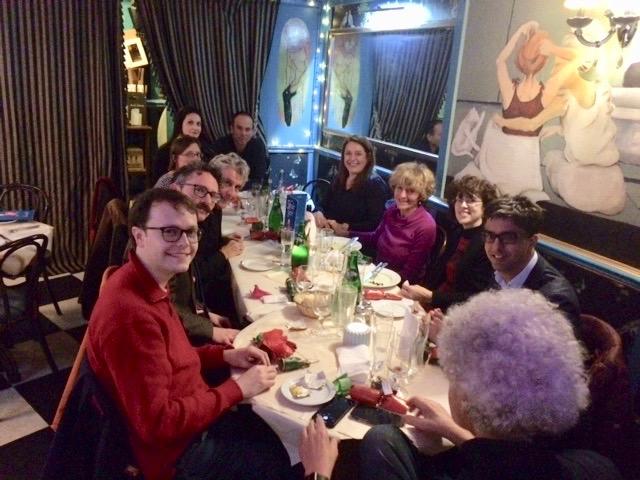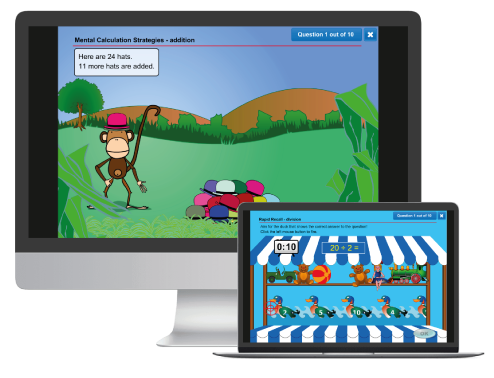Kermit the Frog or Sir Michael Barber?
I was faced with this choice several years ago during my master’s in Education. Two high-profile winter courses were on offer. The first took a look at content creation in EdTech, with Sesame Street serving as the case study. The second was a crash course in consultancy frameworks delivered by Pearson’s Chief Education Advisor Michael Barber (who was also chief advisor to Tony Blair during his premiership). The two courses created a schedule conflict, forcing me to choose one over the other. It was heart vs head: an enthralling deep dive into a television show that shaped my early childhood, or a chance to learn the tools of the consultancy trade that would brighten up any CV.
I went with my heart.
Over the next three weeks, our lecture hall played host to the team behind Sesame Street. Storytellers, teachers, pedagogues and designers all graced the stage to explain how the secret sauce of Sesame Street is its ability to combine educational expertise with entertainment value to ensure neither ever undermines the other. The recipe has stuck with me ever since and was one of the main drivers behind my decision to join Whizz Education. The 1200 interactive exercises on Maths-Whizz each reflect a close-knit collaboration between all of those different actors. The explicit acceptance criteria for content on Maths-Whizz is that it is educationally powerful, engaging, and easy-to-use all at once. The richest learning experiences emerge when, and only when, all three are given their due attention.

Dinner talk with leading maths educators
I was reminded of the supreme importance of content last week during a Whizz-sponsored dinner that we organised to welcome Professor Keith Devlin to London. Keith is a renowned maths educator who has written extensively on the importance of striking the balance between engagement and pedagogy. He has made his own foray into EdTech with his company BrainQuake which “produces educational game based learning products backed by extensive research to dramatically improve math proficiency.” Keith was due to deliver a seminar at the London Knowledge Lab, which was unfortunately cancelled due to strikes. Attendees of the dinner were treated to a brief summary. Keith touched on the power of video games as a medium of instruction that can relieve students of the ‘symbol barrier’ that impedes mathematical understanding. While Keith was bullish on the prospect of mathematics being taught through compelling game-like experiences, he did make note of the challenge of ‘transfer’, whereby students who demonstrate proficiency in mathematical techniques on screen are unable to do the same when presented with the same task on paper.

Keith’s remarks prompted all manner of discussion among the guests. A number of leading EdTech researchers and practitioners were present, including the Knowledge Lab’s founder Richard Noss, Dame Celia Hoyles, Mathigon founder Philipp Legner, MEI’s Tom Button and Whizz’s own CEO Richard Marett. The evening was filled with provocations and prognostications on the potential of technology to enrich maths instruction.
Data is secondary to content
The dinner took place on December 3rd, only hours after the release of the latest PISA rankings. While there was fleeting mention of the rise and decline of various nations, it is telling that the conversation moved swiftly back to matters of content and pedagogy. The narratives surrounding large-scale research studies like PISA are too easily anchored to data outputs with little thought given to the assessments that all the analysis is based on. For all the charts that populated my Twitter feed that day, I did not catch a single glimpse of PISA’s assessment items. We have had much to say about PISA at Whizz, and we will undoubtedly reflect on the latest findings in good time. The dinner, though, was a welcome reminder that all educational data exists within a pedagogical context, and so too must our analysis of data.
So what came of Michael Barber’s course? The reviews from my peers who attended were positive enough, and there is no shortage of literature (much of it penned by Barber himself) that covers the same themes of measurement and accountability. Both are important; they are embraced as central edicts here at Whizz. Just this week, we released a white paper on global learning metrics, adding to two previous papers that also centred on the use of data. But underlying our zeal for learning data is an obsession with educational content. Every data point that is crunched and analysed ultimately reflects the pedagogical substance of our content.

The ‘garbage in, garbage out’ principle rings true in education, especially at a time when learning data is high on the policy agenda. Weak content corrupts any subsequent analysis. Strong content, on the other hand, is the foundation for quality learning outcomes, and gives context and meaning to learning data.
Dr Junaid Mubeen – Director of Education at Whizz Education
